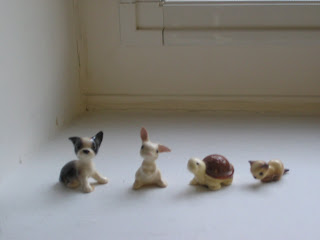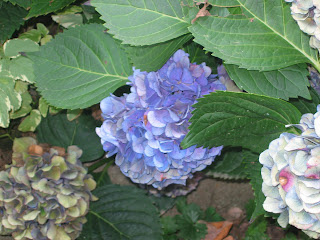
So... my car was towed this weekend. I was doing the first week of anniversary shows for
Too Much Light Makes the Baby Go Blind and when I tried to start my car to head home, it wouldn't start. I caught up with some ensemble members and
Tim offered to help jump the car.
And then we realized I had locked my keys in. So... 30 minutes up to Evanston to get my husband's keys... but he was fast asleep (which was totally fair since it was about 2:30am at this point). So... I knocked on the front windows while Tim banged on the bedroom windows and we finally got Andy up. Poor guy. Bleary-eyed, totally confused, and still sleepy he handed over his keys, gave me lots of kisses... and I went back to the theatre to get the car.
The jump did not work, and since it was 3am at this point, Tim offered to call 311 to see if the car was in a tow zone. We told them where it was. They said it would only be towed if there was 2 or more inches of snow (which there was not). So... I decided to leave it there and deal with it in the morning.
Tim drove all the way back to Evanston one more time, and I got in bed next to my still-awake husband around 3:30am. Our daughter woke up at 4am, and came in each half hour. Andy got up at 6am, and I slept until 8am. We headed out for breakfast and then took the train down to Andersonville to get the car.
Which was gone. Gone gone gone. I tracked it down, went to the impound lot, and paid the $160 to get it out. Then called AAA to have it towed. Then waited for 4 hours; yes... 4 hours. Ari missed her nap. Then she missed lunch. Then it was closing in on dinner time. Finally, someone from AAA showed up and said they couldn't come in to get the car. We had to have someone else tow it to the gate.
We found someone who would tow it out, but the AAA guy left and said he would come back in half an hour... maybe. Thankfully, the private towing guy agreed to drive us all the way to the service station we had found in Evanston for $100 (it's $60 just to get it to the gate of the lot, so this seemed like a good deal).
We got home around 6pm, I ate, slept a bit, and then went back to the theatre, this time catching a ride with
Greg from the el. Meanwhile, I looked at the ticket we also were given on top of the towing expense and saw it was another $60. Lovely.
So... the car was ready Sunday afternoon. We picked it up. $147. And all three of us spent the day in a sort of daze. Andy and I shellshocked by the expense of my decision not to call AAA in those wee hours of Sunday morning BEFORE the car was towed... Ari still talking about the "mean" people who took our car away and the "stinky place" we spent our whole Saturday.
My husband asked this morning if I was going to blog about this today. And I really hadn't intended to. He was right in suggesting it was an incredible test of spiritual reserve and opportunity for growth (kind of a practice in action thing). And it really did shake all three of us up. Ari is still talking about it and acting it out in play. I keep getting hit by random waves of panic and have a pretty strong twinge of anxiety every time I start the car.
But mostly, I felt okay about it. I mean... I have been very mad at myself for not calling that night instead of leaving the car behind. Very mad at the woman who said I would not be towed. And very, very mad at the city for not posting adequate signage and for creating a system wherein you cannot contest what has happened without endangering yourself financially—which means anyone who gets towed ultimately has to end up paying. Because no one can afford to take the risk of keeping the car in the lot while they wait for the hearing to happen and find out if the charges will be dropped.
So. The unfairness is upsetting. The inherent possibility and almost-definite existence of corruption within the system angers and saddens me. But I was mostly able to let go of even that. I pretty much forgave myself all my crying during our ordeal on Saturday. Was grateful I kept my cool the whole time and did not lose my temper. Was extremely grateful to Tim and Greg for their help.
It is what it is. It is done.
And then I heard a story on
NPR this morning about a woman who crossed from Egypt into Israel with her children, seeking asylum. That's when I decided I would blog about this. Because her story, and of other refugees like her, put all the little emotional loose ends I might have been feeling to rest as soon as I heard it.
I encourage you to
listen to it when you have time.
My car being towed was such a small thing. As my husband noted on the day we waited so long to get our car: the only thing it was costing us in the end was money and time. Both of which, at this time in our lives, we were able to spare—a significant thing to note.
We were all safe. We all stayed warm. My friends helped me out, they made me smile and laugh, and we are with vehicle again. Something that, in this economy especially, is a blessing all by itself.
It took me a very long time - very long - to stop comparing my suffering to that of other people. And sometimes, I still find I get wrapped up in my private, inner emotional tailspins and have to remind myself to stop. Mindfully cease the litany of sorrow and shift instead to seeing with eyes aware of the many good things I call my own... to look around and notice so many other people much more in need of compassion and empathy than I.
I actually feel very lucky today. And so much more aware of how small this event was in the grand scheme of things. My energies are much better spent focusing on the suffering of others, the injustices of the world, and opportunities for action and compassion and giving back.
Listen to that story.
Consider your blessings.
And don't leave your car overnight on the corner of Ashland and Foster - no matter how much snow is on the ground.
May you see the positives in your life today. May you reach out to help someone in whatever way you can.




















